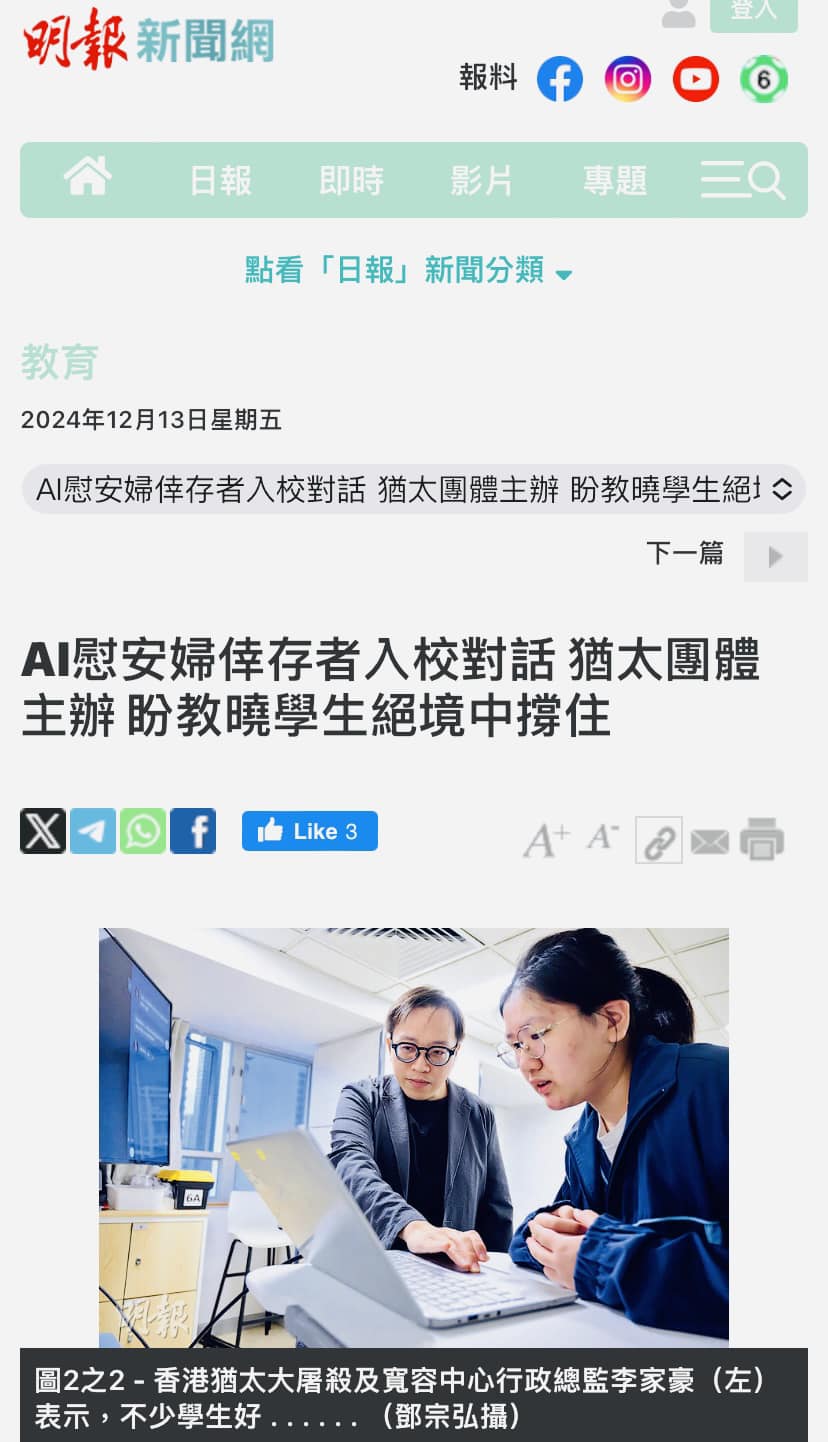In a recent feature by Ming Pao Daily News on the eve of the 87th anniversary of the Nanjing Massacre, the Hong Kong Holocaust and Tolerance Centre (HKHTC) highlighted its innovative educational initiatives regarding the Nanjing atrocities. Executive Director Simon K. Li discussed the Centre’s collaboration with the University of Southern California’s Shoah Foundation, which leverages artificial intelligence to create interactive educational experiences for students.
This initiative allows students to engage in “face-to-face” dialogues with survivors of the Nanjing Massacre and comfort women, enhancing their understanding of these historical events. As Li emphasized, while history textbooks often present “cold, hard death tolls,” the Centre aims to instill hope and resilience through the powerful testimonies of survivors. You can read the full article here.
//【明報專訊】歷史教育不時觸及見證人的口述證言,本身推動了解二戰納粹大屠殺及反戰教育的香港猶太大屠殺及寬容中心,近日與美國南加州大學合作,透過人工智能(AI)將南京大屠殺、慰安婦倖存者「帶入」校園,讓學生與倖存者「面對面」對答,認識戰爭慘劇。中心行政總監、美國南加州大學猶太大屠殺基金會高級學人李家豪表示,歷史教科書多着眼於「冷冰冰的死亡數字」,盼藉倖存者的不屈經歷,教曉學生「(絕境時)不失盼望地撐下去」。//
( [Ming Pao Daily News] History education often touches upon the oral testimonies of victims and witnesses. The Hong Kong Holocaust and Tolerance Centre, which promotes understanding of Holocaust and tolerance education, has recently collaborated with the University of Southern California’s Shoah Foundation. Through artificial intelligence (AI), they aim to “bring” survivors of the Nanjing Massacre and comfort women into local classrooms, allowing students to engage in “face-to-face” dialogue with survivors and learn about the different aspects of the war. The Centre’s Executive Director and USC Shoah Foundation’s Senior Nonresidential Fellow, Simon K. Li, stated that history textbooks often focus on “cold, hard death tolls” and hope to teach students to “hold onto hope and persevere” in times of despair…)

